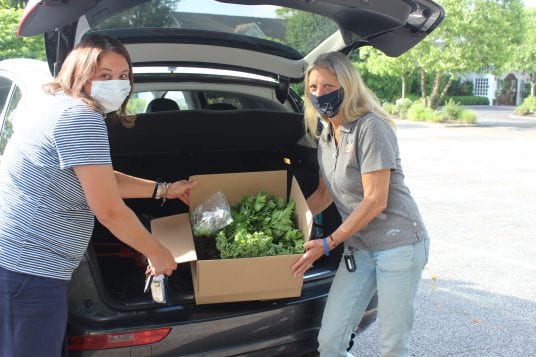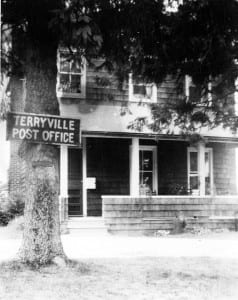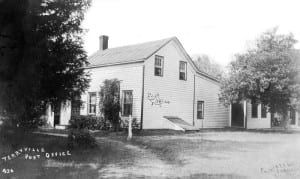Local non-profit pivots fundraising effort and aids local farmers, community, and economy
The Smithtown Children’s Foundation has spent the last twelve years helping local residents in need. Funds are raised primarily by large gathering events. C0VID-19 has canceled all of those events for 2020. “We had to pivot just like every other business. Unfortunately, need is at an all-time high, when our funds are at an all-time low,” said Christine Fitzgerald, President, and Co-Founder of Smithtown Children’s Foundation. “We had to get creative.”
Farm to Trunk is the brainchild of SCF board member and former Nesconset Farmer’s Market Manager, Nancy Vallarella. “COVID related social media posts revealed local residents were ordering product from distributors that were sourcing produce from all over the country. With Long Island’s harvest approaching, why not organize a minimal contact delivery system that would help Long Island farmers, the local economy, and provide the consumer with the freshest, nutrient-packed produce available?” she said.
Red Fox Organic Farms, located on the property of the Sisters of St. Joseph in Brentwood, was the first Long Island farm to join this fundraising program. Jim Adams, Red Fox’s Farm Coordinator remarked,” We are thrilled and so grateful to be working with SCF. It’s just the connection we needed to begin sharing our food with the Long Island community.”
Smithtown resident Dawn Mohrmann has purchased the Red Fox Organic produce box for the past four weeks. “The Farm to Trunk Smithtown Children’s Foundation program has been an easy decision. A great foundation paired with great local, organic, farm-fresh food! Healthy produce for our family is what we look forward to every week,” said Mohrmann.
SCF’s Farm to Trunk will be bringing Sujecki Farms (Calverton), back to Smithtown as an additional produce provider for the Farm to Trunk Fundraiser. “Sujecki Farms has a following here in Smithtown. They have been an anchor in Smithtown’s Farmers’ Market history for over a decade,” said Vallarella. “They are a family that has been farming on Long Island for over 100 years. We welcome their products and are excited to continue to support their farming effort.”
All orders are placed directly with each farm and are delivered to Watermill Caterers, 711 Smithtown Bypass/Rt.347, Smithtown. Smithtown Children’s Foundation volunteers deliver the produce boxes to the customer’s car trunk from the southwest corner of the Watermill’s parking lot every Wednesday from 5:30 to 7 p.m. There is no on-going commitment. Consumers can order week to week.
Information on the program can be found on the Farm to Trunk — Smithtown Children’s Foundation Facebook.
Order links:
Red Fox Organic Farms — https://www.redfoxfarm.farm/product-page/red-fox-box
Sujecki Farms — https://www.sujeckifarms.com/product-page/smithtown-farm-to-trunk-veggie-box
Photos from Nancy Vallarella













